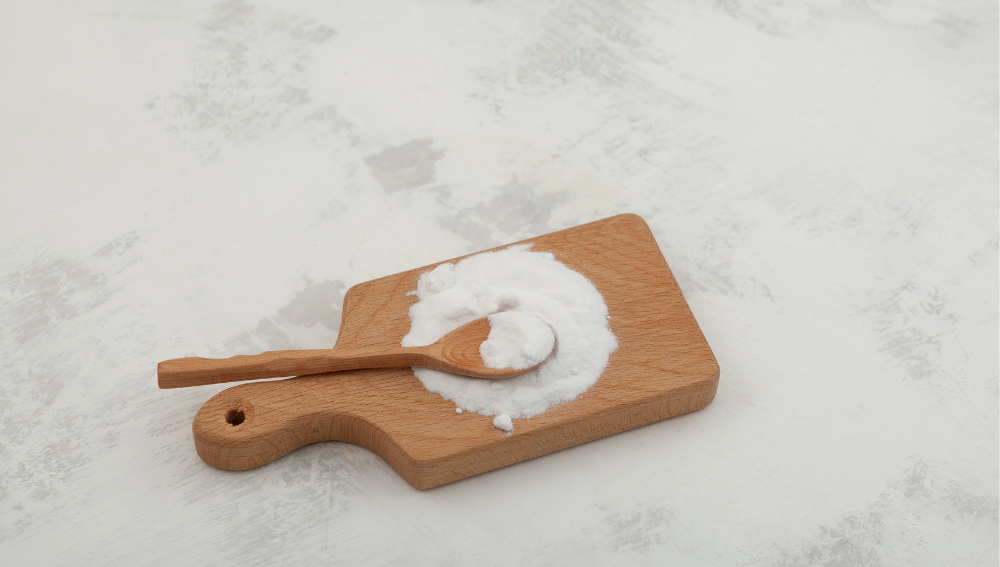Can you reheat eggs in the microwave? This is a common question for those who meal prep or have leftover eggs from breakfast. The answer is yes, you can safely reheat most egg dishes in the microwave.
However, there are certain precautions and techniques you should follow to ensure the eggs are reheated properly and safely.
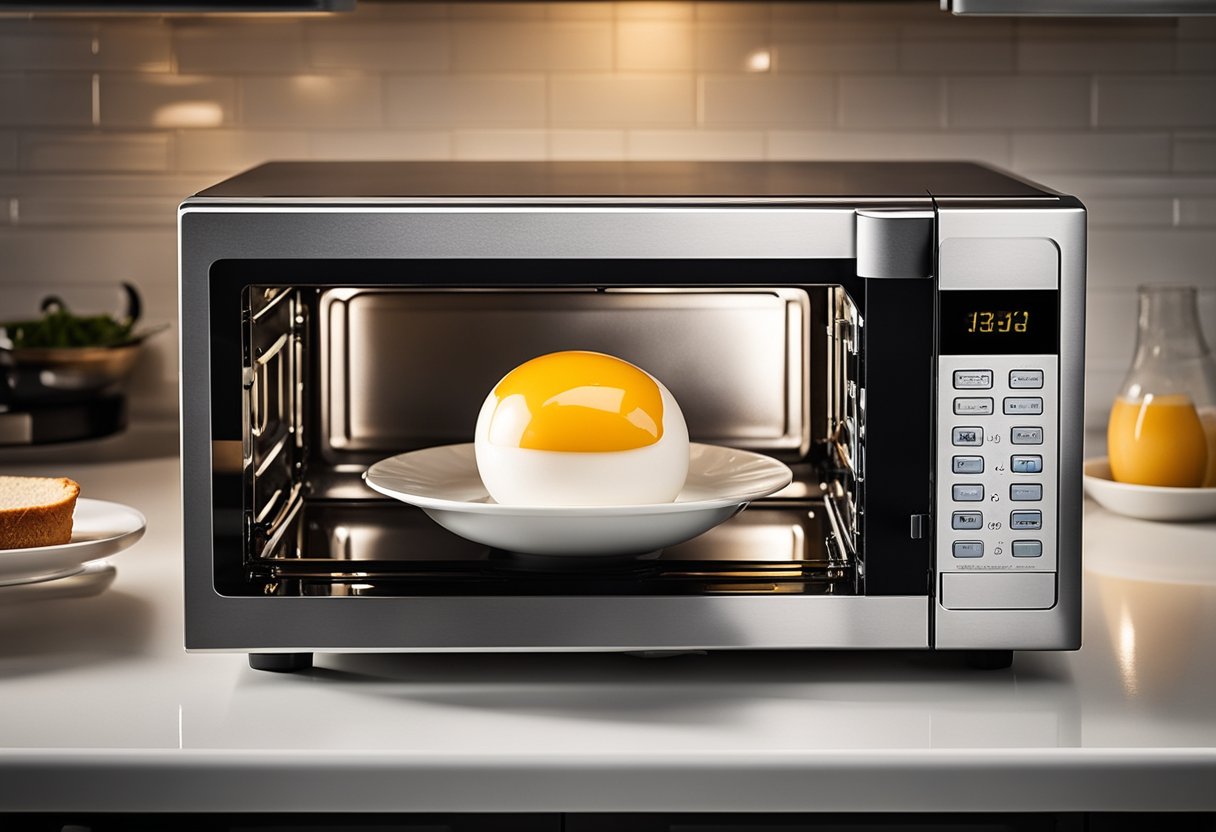
Understanding the basics of reheating eggs is important to maintain their taste and texture. Different types of eggs require different reheating techniques, and there are certain safety precautions you should take to avoid foodborne illnesses.
Additionally, there are alternative reheating methods that can enhance the flavor and texture of your eggs. In this article, I will provide you with all the information you need to know about reheating eggs in the microwave, including preparation, safety, and storage considerations.
Key Takeaways
- Reheating eggs in the microwave is safe, but there are certain precautions you should take to ensure they are reheated properly.
- Different types of eggs require different reheating techniques, and there are alternative methods to enhance their flavor and texture.
- Proper preparation, safety, and storage considerations are important when reheating eggs to maintain their nutritional value and avoid foodborne illnesses.
Understanding the Basics of Reheating Eggs
As someone who loves eggs, I often find myself with leftover cooked eggs that I want to reheat. One of the most convenient ways to reheat eggs is in the microwave.
However, it’s important to understand the basics of reheating eggs to ensure that they are safe to eat and taste good.
When reheating eggs in the microwave, it’s essential to use a microwave-safe container. Glass and ceramic containers are good options, while plastic containers may not be safe for high-heat microwaving. Additionally, cover the container with a microwave-safe lid or plastic wrap to prevent splatters.
The amount of time required to reheat eggs in the microwave varies depending on the type of eggs and the desired temperature.
For example, scrambled eggs may only need 30 seconds to a minute, while a frittata or quiche may need 2-3 minutes. It’s important to stir or rotate the eggs every 30 seconds to ensure even heating.
While reheating eggs in the microwave is safe, it’s important to be cautious to preserve taste and avoid possible risks.
Overheating eggs can cause them to become rubbery and lose their flavor. Additionally, reheating eggs that have been left out at room temperature for too long can increase the risk of foodborne illness.
In summary, reheating eggs in the microwave is a convenient way to enjoy leftover cooked eggs. However, it’s important to use a microwave-safe container, cover the container, and heat the eggs in intervals while stirring or rotating. By following these basics, you can reheat eggs safely and enjoyably.
Types of Eggs and Reheating Techniques
Reheating eggs is a common practice, but it is important to know the right method for different types of eggs. Here are some popular types of eggs and the best reheating techniques for each.
Scrambled Eggs
Scrambled eggs can be reheated easily in the microwave. Put the eggs in a microwave-safe dish and cover it with a microwave-safe lid or plastic wrap. Heat the eggs on high for 20-30 seconds, then stir and repeat until the eggs are hot.
Boiled Eggs
Boiled eggs can be hard to reheat, but it is possible. You can reheat boiled eggs in the microwave by boiling water in a microwave-safe bowl and then dropping the eggs into the hot water outside of the appliance. Be sure to peel the eggs before reheating.
Poached Eggs
Poached eggs are best reheated by poaching them again. Simply bring a pot of water to a simmer, add the poached eggs, and cook for 1-2 minutes until heated through.
Fried Eggs
Fried eggs can be reheated in the microwave or on the stove. To reheat in the microwave, put the eggs in a microwave-safe dish, cover it with a microwave-safe lid or plastic wrap, and heat on high for 20-30 seconds.
To reheat on the stove, heat a nonstick skillet over medium heat, add a little butter or oil, and cook the eggs until heated through.
Quiche and Frittatas
Quiche and frittatas can be reheated in the oven or microwave. To reheat in the oven, preheat it to 350°F, put the quiche or frittata in an oven-safe dish, cover it with foil, and heat for 10-15 minutes or until heated through.
To reheat in the microwave, put the quiche or frittata in a microwave-safe dish, cover it with a microwave-safe lid or plastic wrap, and heat on high for 30-60 seconds or until heated through.
Omelettes and Egg Salads
Omelettes and egg salads can be reheated in the microwave or on the stove. To reheat in the microwave, put the omelette or egg salad in a microwave-safe dish, cover it with a microwave-safe lid or plastic wrap, and heat on high for 20-30 seconds.
To reheat on the stove, heat a nonstick skillet over medium heat, add a little butter or oil, and cook the omelette or egg salad until heated through.
In summary, reheating eggs is safe and can be done using various methods. Choose a reheating method based on convenience, taste, and the type of eggs. Be cautious while reheating to preserve taste and avoid possible risks.
Preparation Before Reheating
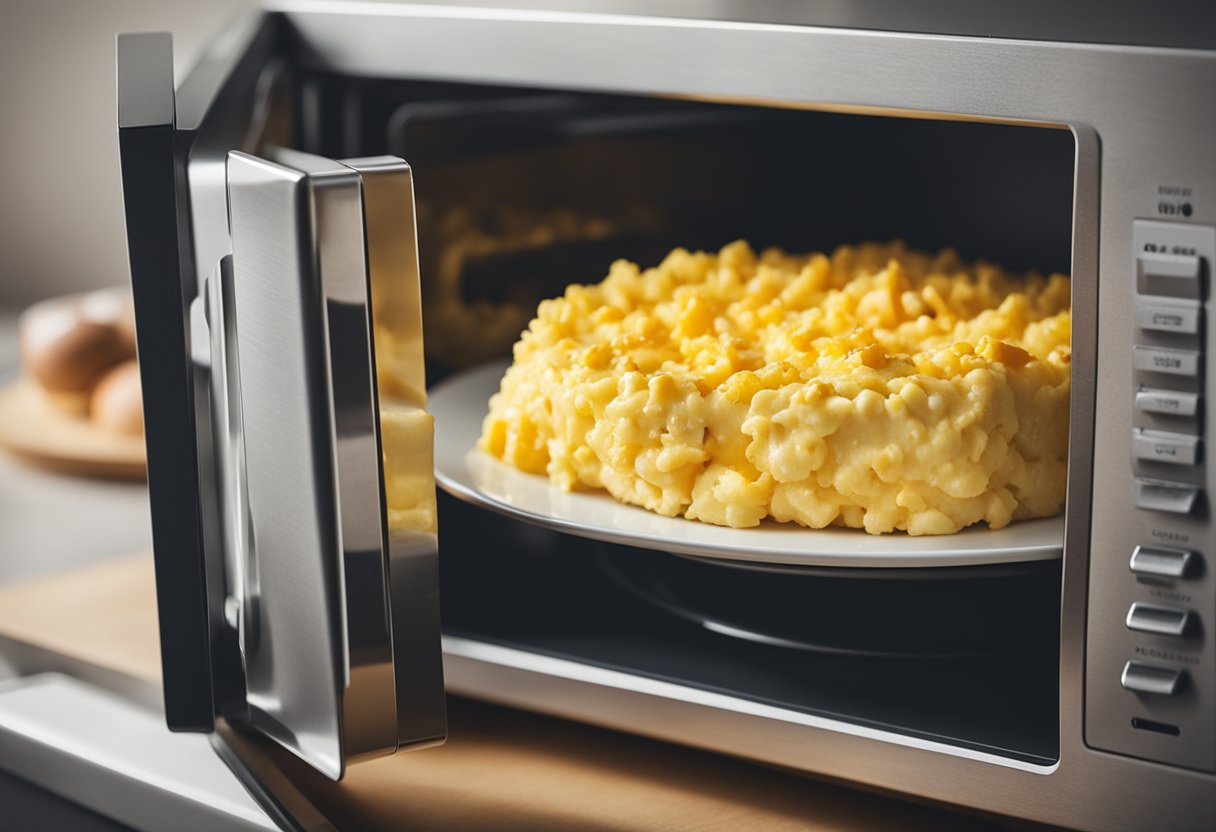
Before reheating eggs in the microwave, it is important to prepare them properly to ensure they heat evenly and safely. Here are some tips on how to prepare your eggs for reheating:
Choose the Right Container
When reheating eggs in the microwave, it is important to use a microwave-safe container to avoid any potential hazards. A microwave-safe plate or bowl is ideal for most egg dishes, such as scrambled eggs or omelets. For hard-boiled eggs, a microwave-safe bowl or container is recommended.
Cover with a Damp Paper Towel
To prevent your eggs from drying out while reheating, cover them with a damp paper towel. This helps to trap moisture, keeping your eggs moist and tender.
Use a Fork to Scramble Eggs
If you are reheating scrambled eggs, use a fork to fluff and separate the eggs before microwaving. This helps to ensure that the eggs heat evenly and do not become rubbery or overcooked.
Add Seasonings and Ingredients
To enhance the flavor of your reheated eggs, consider adding some seasonings and ingredients. Bacon, pepper, onions, tomatoes, shredded cheese, ham, and vegetables are all great options to add to your eggs before reheating. Just be sure to add them in moderation to avoid overpowering the flavor of the eggs.
Store Leftovers Properly
If you have leftover eggs that you want to reheat, be sure to store them properly in the refrigerator. Leftover eggs should be stored in an airtight container and consumed within 3-4 days.
Add Salt After Reheating
It is best to add salt to your reheated eggs after they have been heated. This helps to prevent the eggs from drying out and becoming tough.
By following these simple preparation tips, you can ensure that your reheated eggs are safe, flavorful, and delicious.
Safety Precautions and Considerations
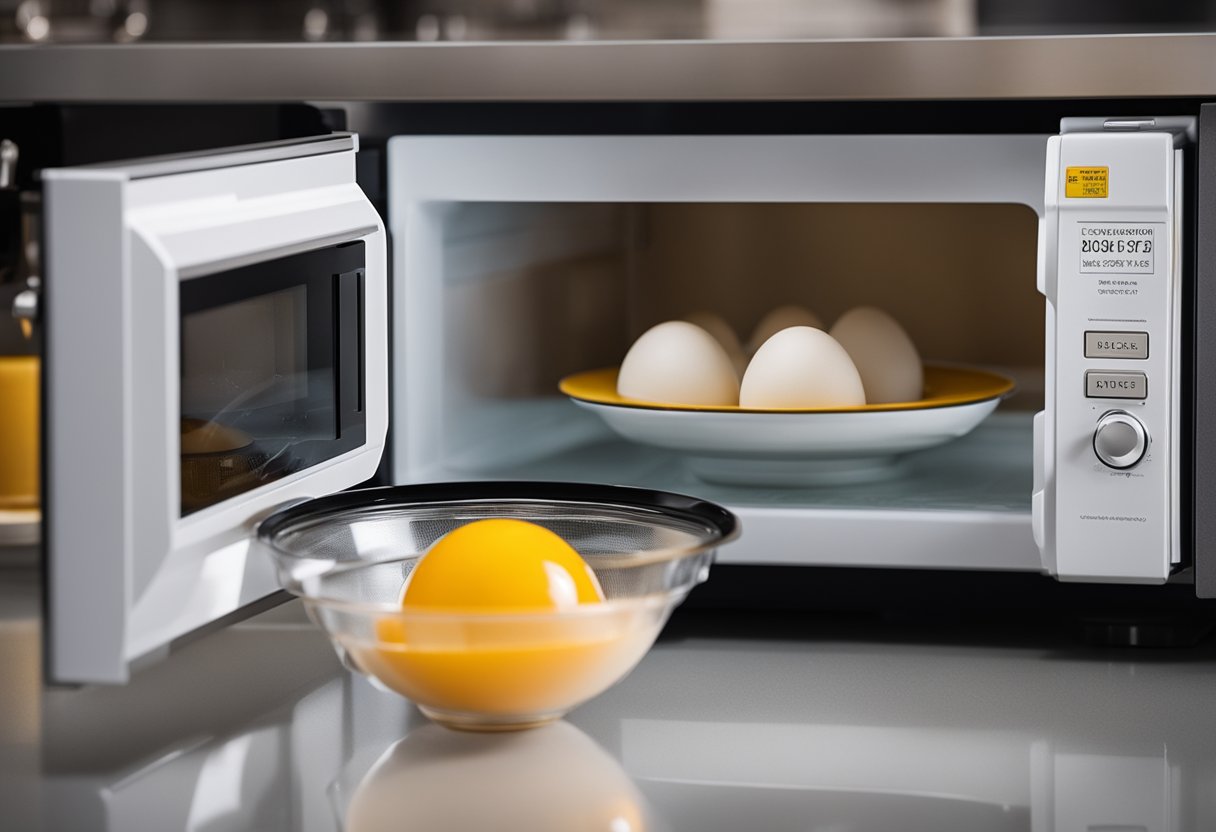
When reheating eggs in the microwave, it is important to take certain safety precautions to avoid potential health risks. Here are some safety guidelines and precautions to keep in mind:
- Cook the eggs thoroughly: To avoid the risk of foodborne illness, it is recommended to cook the eggs until they reach an internal temperature of 165°F or higher. Use a food thermometer to ensure that the eggs are cooked to the right temperature.
- Don’t overheat the eggs: Overheating the eggs can lead to potential risks, including the risk of explosion. Avoid overheating the eggs by using a medium power level and reheating them in short intervals.
- Avoid using aluminum foil: Never use aluminum foil to reheat eggs in the microwave. Aluminum foil can cause overheating and potentially lead to an explosion.
- Use microwave-safe containers: Always use microwave-safe containers to reheat eggs in the microwave. Using plastic containers that are not microwave-safe can cause the plastic to melt and release harmful chemicals into the food.
- Be mindful of bacteria: Eggs can contain bacteria such as Salmonella, which can cause foodborne illness. To minimize the risk of bacteria, make sure to store eggs properly and cook them thoroughly before reheating.
By following these safety considerations, you can safely reheat eggs in the microwave without risking your health.
Nutritional Impact of Reheating Eggs
As an egg is reheated, its nutritional value may be altered. However, there is no research to suggest that reheating previously cooked eggs affects anything other than their texture and possibly their taste.
Eggs are known for their high protein content, which is an essential nutrient for building and repairing tissues in the body. According to Healthline, a single large egg contains around 6 grams of protein.
Reheating eggs in the microwave may cause some of the protein to break down, leading to a slightly lower protein content.
In addition to protein, eggs are also a good source of vitamin C, which is an antioxidant that helps protect cells from damage. However, vitamin C is heat-sensitive and may be lost during the reheating process.
It is important to note that the nutritional impact of reheating eggs largely depends on the cooking method used to prepare them in the first place.
For example, boiling eggs may cause some of the nutrients to leach out into the water, which means that reheating boiled eggs may result in a lower nutritional value compared to other cooking methods.
Overall, while reheating eggs may slightly alter their nutritional value, they are still a healthy and nutritious food to consume. It is recommended to consume eggs within a few days of cooking them and to reheat them thoroughly to reduce the risk of foodborne illness.
Alternatives to Microwaving

While microwaving is a convenient way to reheat eggs, there are other methods that can be used. Here are some alternatives that you can try:
Stovetop
Using the stovetop is a great way to reheat eggs, especially if you want to avoid the microwave. To reheat scrambled eggs, simply heat a non-stick pan over medium heat and add the eggs.
Stir occasionally until they are heated through. If you want to reheat a fried egg, heat a small amount of oil in a pan over medium heat and add the egg. Cook until the white is set and the yolk is warm.
Oven
The oven is another option for reheating eggs. Preheat the oven to 350°F (175°C). Place the eggs in a baking dish and cover with foil. Bake for 10 minutes or until heated through. If you want to reheat a frittata or quiche, place it in the oven for 15-20 minutes or until heated through.
Boiling
Boiling is a simple way to reheat eggs. Bring a pot of water to a boil and add the eggs. Cook for 1-2 minutes or until heated through. Remove the eggs from the water and serve.
Baking
Baking is a great way to reheat eggs if you have a little more time. Preheat the oven to 350°F (175°C). Place the eggs in a baking dish and cover with foil. Bake for 10-15 minutes or until heated through.
Frying
Frying is another option for reheating eggs. Heat a small amount of oil in a pan over medium heat and add the egg. Cook until the white is set and the yolk is warm.
Overall, there are many alternatives to microwaving eggs. Each method has its own advantages and disadvantages, so choose the one that works best for you. Keep in mind that cooking times may vary depending on the method you choose.
Enhancing Flavor and Texture
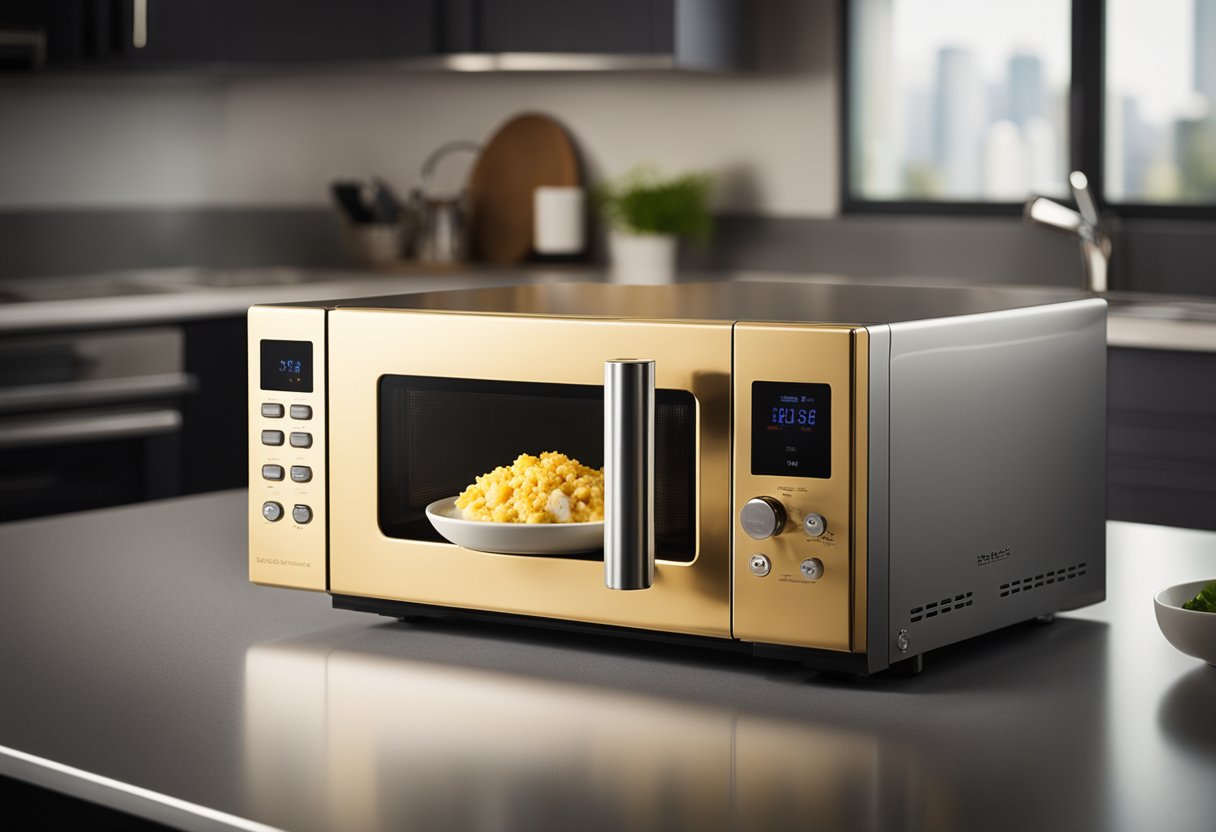
When reheating eggs in the microwave, it’s important to take steps to enhance their flavor and texture. Here are a few tips I recommend:
Add Liquid
Adding a splash of milk or other liquid to your eggs before reheating can help keep them moist. This is especially important if you’re reheating scrambled eggs, as they tend to dry out quickly in the microwave.
Simply beat the eggs with a small amount of milk or cream before reheating, and you’ll notice a significant improvement in texture.
Use Oil
Another way to enhance the flavor and texture of reheated eggs is to add a small amount of oil. This can be as simple as drizzling a bit of olive oil over your eggs before microwaving them, or using a non-stick cooking spray to coat your dish.
The oil will help prevent the eggs from sticking to the dish and drying out, while also adding a subtle flavor boost.
Don’t Overcook
One of the biggest mistakes people make when reheating eggs in the microwave is overcooking them. This can lead to rubbery, tough eggs that are far from appetizing.
To avoid this, I recommend reheating your eggs in short bursts of 15-20 seconds at a time, checking them after each interval to see if they’re done to your liking. This will help ensure that your eggs are perfectly cooked and still have a nice texture.
Browning
If you want to add a little extra flavor and texture to your reheated eggs, try browning them in a pan or in the microwave.
To do this, simply cook your eggs as you normally would in the microwave, and then transfer them to a hot skillet or griddle to brown them on both sides. This will give your eggs a nice crispy texture and a delicious flavor that’s hard to beat.
By following these tips, you can enhance the flavor and texture of your reheated eggs and enjoy them just as much as you did the first time around.
Storage and Leftover Considerations
When it comes to reheating eggs in the microwave, it is important to consider storage and leftover considerations.
Eggs should be stored in a sealed container in either the refrigerator or freezer immediately after reheating. This will help maintain their freshness and prevent any spoilage or contamination from other foods.
If you have leftover cooked eggs, it is important to store them properly. Cooked eggs can be stored in the refrigerator for up to four days.
If you plan on reheating scrambled eggs, it is best to store them in an airtight container to prevent them from drying out. If you have leftover boiled eggs, it is best to store them in their shells to prevent them from absorbing any odors from other foods in the refrigerator.
It is safe to reheat eggs in the microwave, but it is important to make sure they are heated to the right temperature to kill any germs and reduce the risk of illness.
A general rule of thumb is that leftover eggs and egg dishes should be thoroughly reheated to 165°F (74°C) before eating. This can be done by heating the eggs in the microwave on medium power level and covering with a lid to trap moisture so the eggs don’t dry out.
When reheating scrambled eggs, it is important to add a bit of moisture to prevent them from becoming dry and rubbery. You can do this by adding a splash of milk or water before reheating. It is also important to stir the eggs every 30 seconds to prevent hot spots from forming.
In conclusion, when reheating eggs in the microwave, it is important to consider storage and leftover considerations. Proper storage and reheating methods can help maintain the freshness of the eggs and reduce the risk of illness.
Frequently Asked Questions
Are reheated eggs safe to eat?
Yes, reheated eggs are safe to eat as long as they are stored and reheated properly. It is recommended to store cooked eggs in the refrigerator within two hours of cooking and reheat them to an internal temperature of 165°F (74°C) before consumption.
How do you reheat scrambled eggs on the stove?
To reheat scrambled eggs on the stove, place them in a non-stick pan over low heat. Stir frequently to prevent sticking and heat until the eggs reach an internal temperature of 165°F (74°C).
Can you reheat eggs sunny side up in the microwave?
It is not recommended to reheat eggs sunny side up in the microwave as the yolk may explode. It is safer to reheat eggs with a firmer yolk texture such as scrambled or boiled eggs.
What is the best way to reheat scrambled eggs in the oven?
To reheat scrambled eggs in the oven, preheat the oven to 350°F (176°C) and place the eggs in an oven-safe dish. Cover the dish with foil and heat for 10-15 minutes or until the eggs reach an internal temperature of 165°F (74°C).
Is it safe to reheat scrambled eggs for babies?
It is not recommended to reheat scrambled eggs for babies as they are more susceptible to foodborne illnesses. It is best to serve freshly cooked eggs to babies.
How long can scrambled eggs be stored in the fridge?
Scrambled eggs can be stored in the refrigerator for up to four days in an airtight container. It is important to reheat them to an internal temperature of 165°F (74°C) before consumption.







